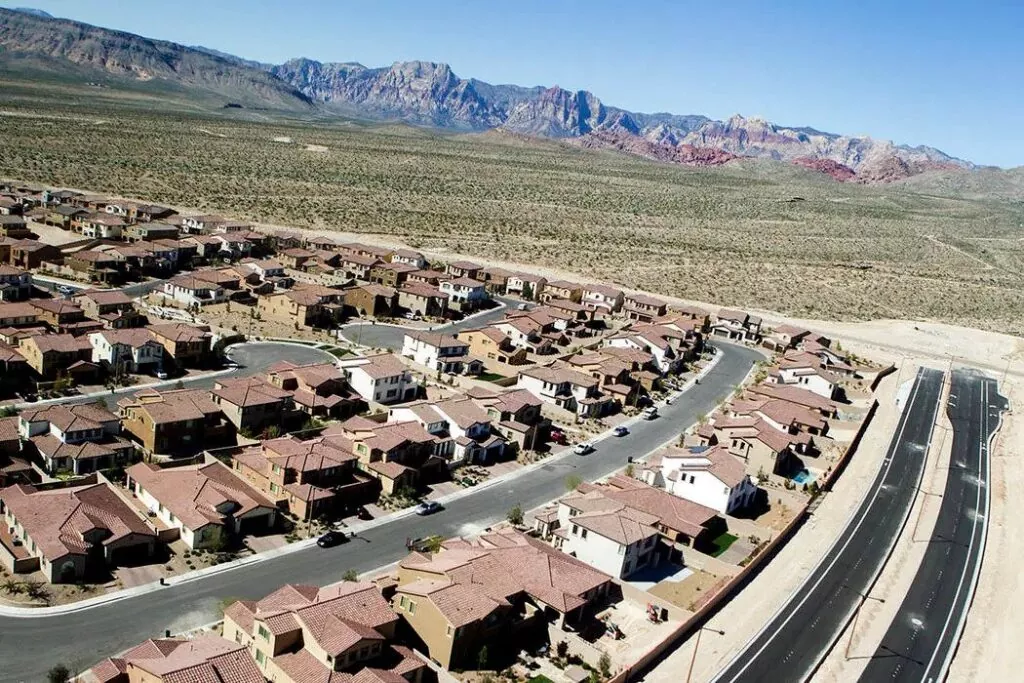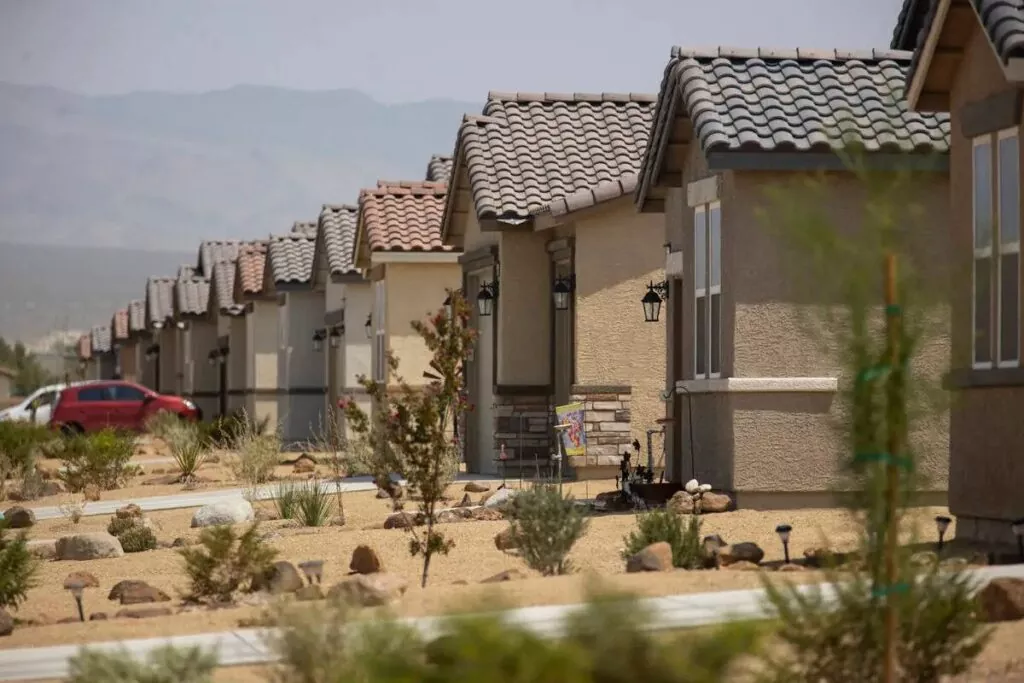
The city of Las Vegas is known for its low property taxes. But how much are the property taxes in Clark County? The answer isn’t straightforward.
Clark County is home to both Las Vegas and Henderson. As of 2022 census data, the population in Clark County is 2.23 million. The city of Las Vegas is well-known for its glitz and glamor, while being home to The Strip, where you can find world-class gambling, entertainment, shopping, and dining.
But there is more to Las Vegas than that. It has many thriving communities that are suitable for singles, families, and retirees. Many people come to Las Vegas to buy property to call their home or for investment purposes. There are several benefits to living in Las Vegas, and one of them is the low state taxes on property.
But how do you calculate the Las Vegas property taxes? This guide will teach you about Las Vegas and Henderson property taxes.

As one of the country’s most competitive real estate markets, many home buyers are surprised to find out that property taxes in Las Vegas is also one of the country’s lowest.
So, how much are the property taxes in Las Vegas?
The short answer is approximately 1% of the home’s value. But the long answer is far more complicated than that. Property taxes in Las Vegas pay for the development of public utilities, such as roads, police force, and schools.
It is impossible to determine your home’s property tax on your own. The tax rate applied to your property is only based on the taxable value. According to Nevada Law NRS 361, the home’s taxable value can never exceed its full cash value. On the other hand, the taxable value is determined by the Clark County Assessor using the market value of the land and the cost of improvements to the property minus the statutory depreciation.
Once the Clark County Assessor has determined the property’s taxable value, they will apply the tax rates for the tax district where your property belongs. A tax district is an area that is designated for tax purposes. Currently, Clark County has 112 tax districts. The tax district is divided based on the monies that the government allocates for that district to provide various services.

One of the advantages to buying a property in Las Vegas is the tax cap imposed in Clark County. The tax caps enable huge savings on property taxes, especially when property tax increases occur.
The annual tax cap on primary residences in Las Vegas is 3%. However, property owners in Las Vegas can only have ONE primary residence. If you own multiple properties, the tax cap is no longer applicable to other properties.
All other properties not listed as a primary residence will be subject to the “other” tax cap, which can be up to 8%, although the average sits at around 4.8%. The property owner is responsible for ” claiming the abatement” to ensure you can enjoy the 3% tax cap on your primary residence.
Upon closing your home, you will receive a letter from the Clark County Assessor asking if the property you purchased will be your primary residence. Make sure to respond to that letter. Otherwise, the Clark County Assessor will subject your property to the 8% tax rate upon the reassessment of the property taxes.
Another tax to be aware of during the closing of your property purchase is the real property transfer tax (RPTT). Typically, the sellers cover this tax payment during a resale transaction. But it varies on your agreement upon closing the home purchase! Make sure to clear this up with the seller to determine who’s supposed to pay for the tax. As a general rule of thumb, buyers pay this tax on new constructions. The current rate for the RPTT is $5.10 for every $1,000 value of the property purchase price.

Nevada law requires the Assessor to assess all property taxes annually. The property tax will be assessed using the current value of the real estate property.
According to the Nevada Administrative Code, the Nevada Assessors are required to adhere to the Marshall & Swift Building Cost Service guidelines when determining the improvement costs and depreciation of the assessed property. The land, on the other hand, will be assessed using market value.
The Marshall & Swift Building Cost Service guideline is updated annually to reflect the current market conditions.
As a homeowner, you can protest any property tax increases, especially if you determine that that tax is too high. The tax rates on your property remain the same, but you can change the taxable value of your home, which will significantly lower your property taxes. You can always refer to the taxable value of your home and comparable sales in your area to determine if the tax value is too high.
Did you find the above information overwhelming? Worry no more; a professional and experienced real estate agent can help guide you through the Las Vegas property taxes so you can be informed in the buying process.
While it might seem complicated, tax rates in Las Vegas are one of the primary reasons why many choose to invest in its real estate market. Aside from the obvious benefits of living in Las Vegas, the lower tax rates make it even more attractive to property buyers. The Las Vegas property taxes are lower than the national average, and exemptions and deductions are offered for eligible buyers. For example, seniors (age 65 and above) qualify for a lower assessed value of $10,000, resulting in significant tax reductions.
Whether you are a first-time homebuyer or a seasoned investor in Las Vegas, it pays to be informed about property taxes. It will help you identify opportunities to ease your tax burden, especially in a highly competitive real estate market.